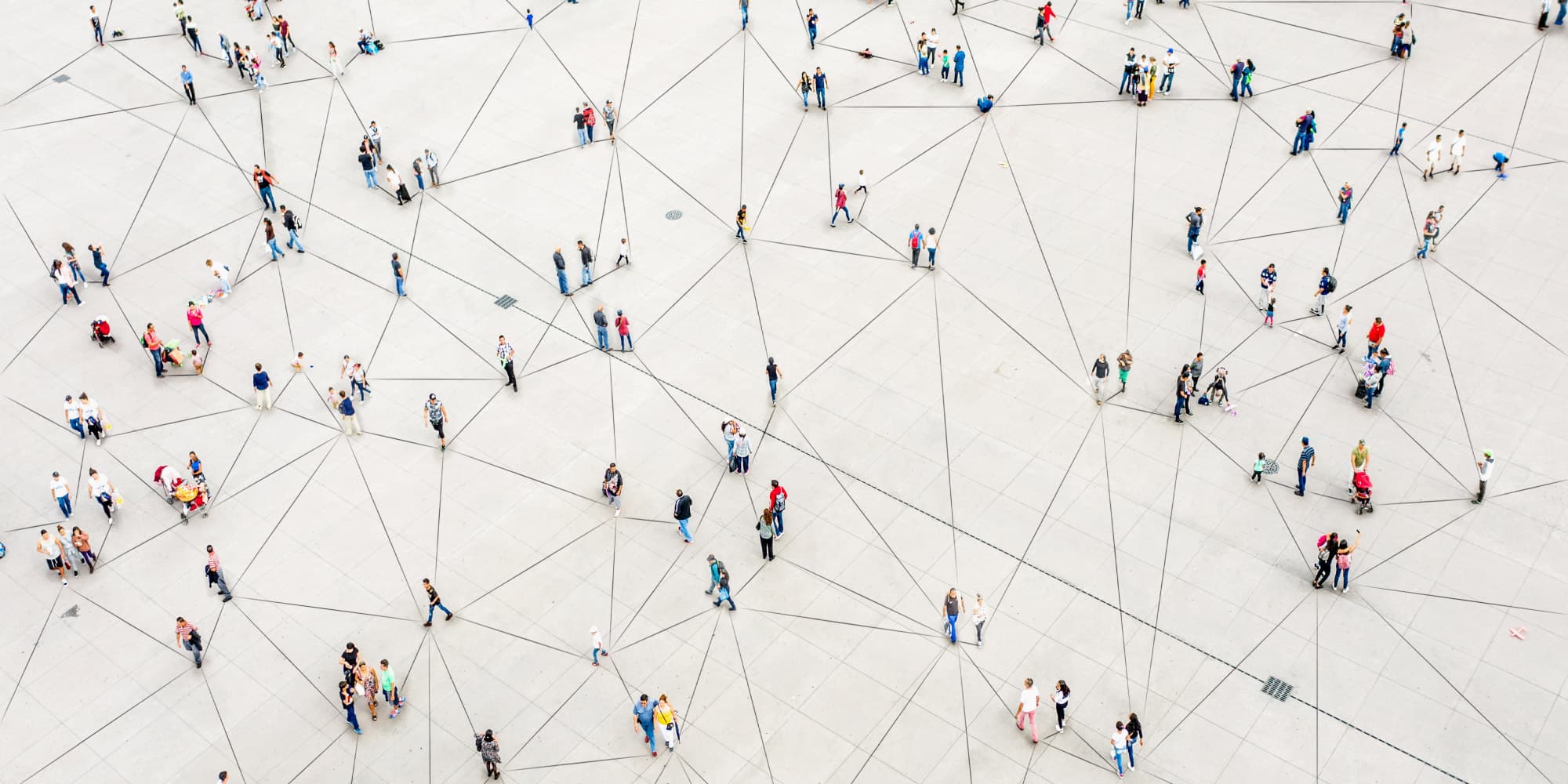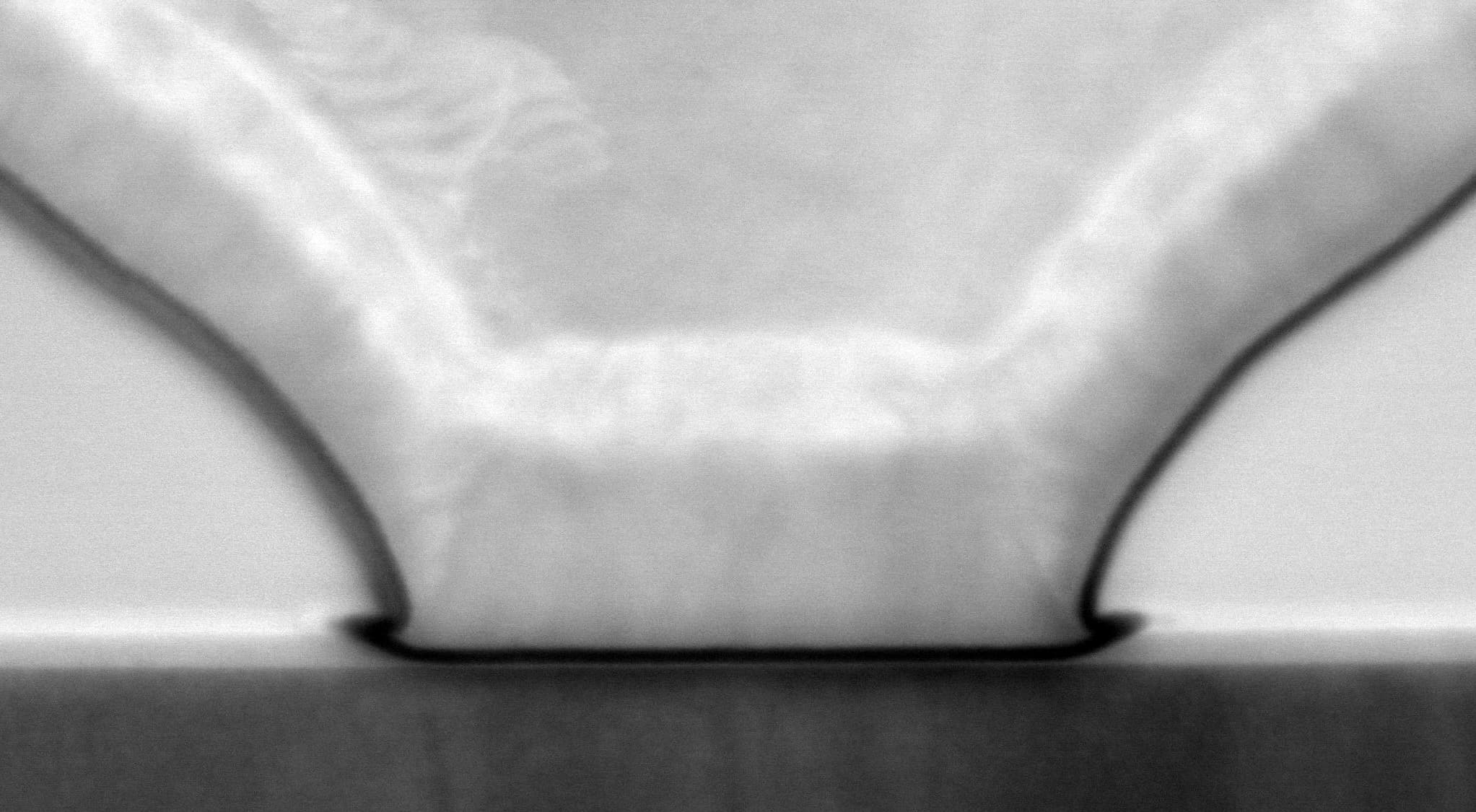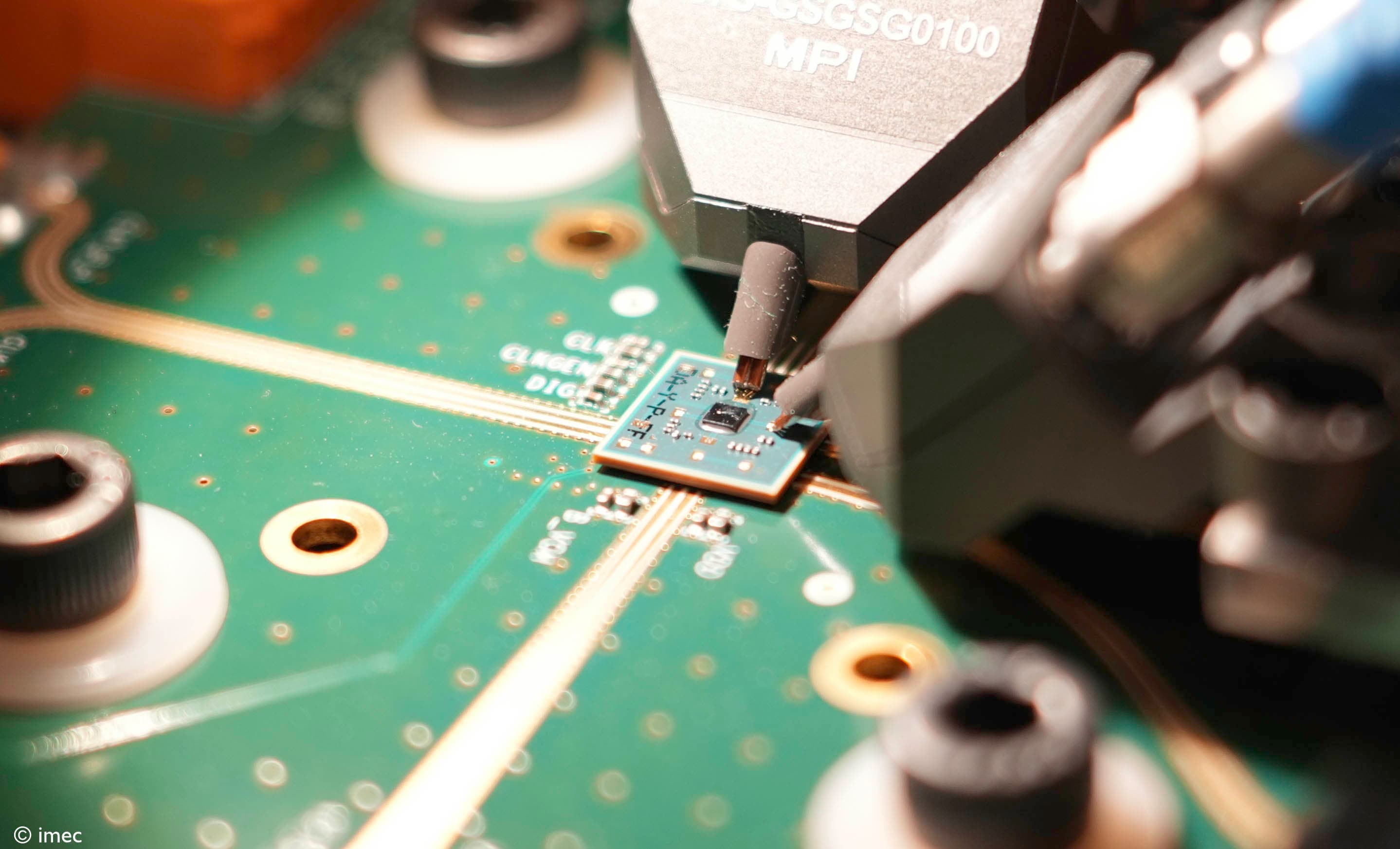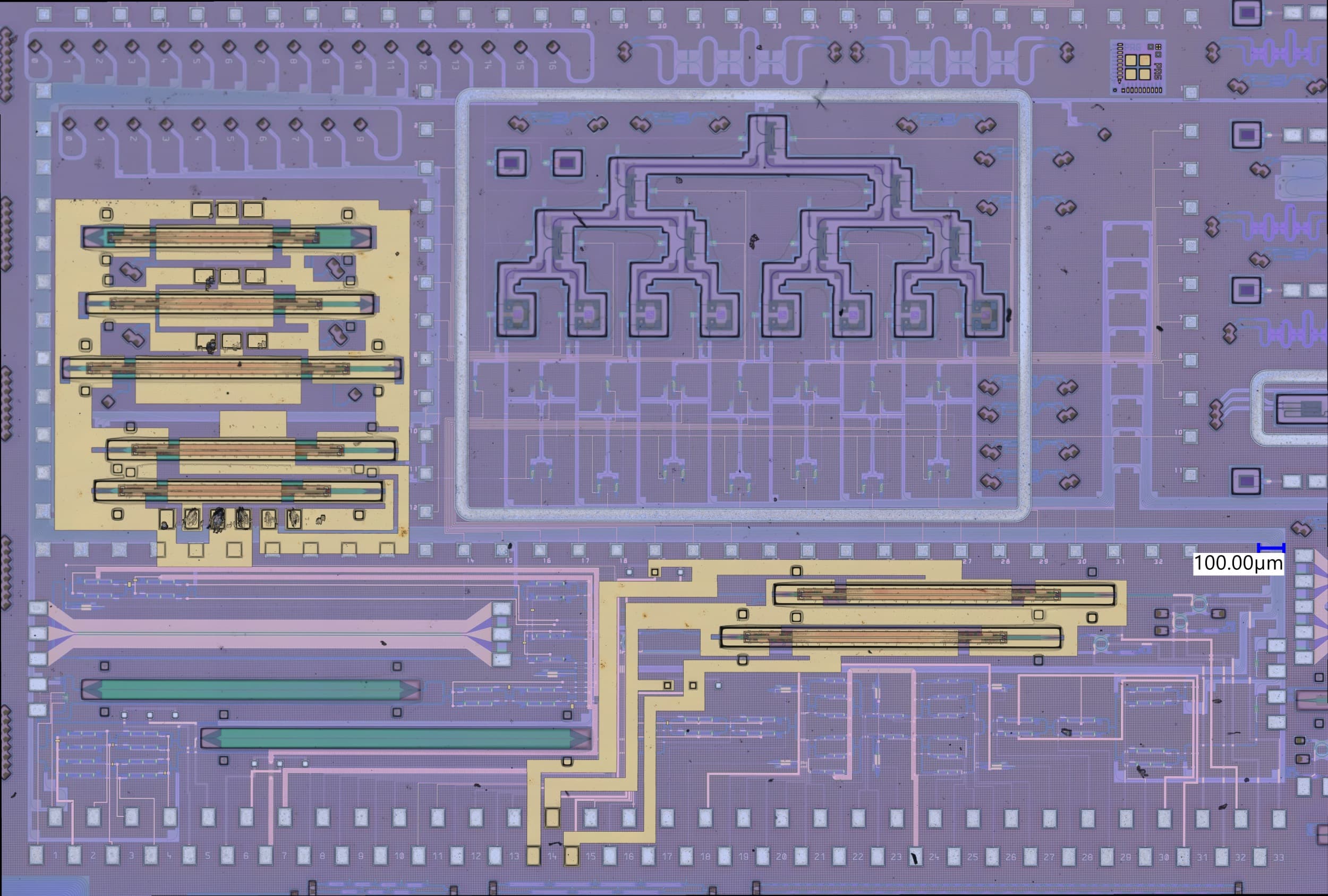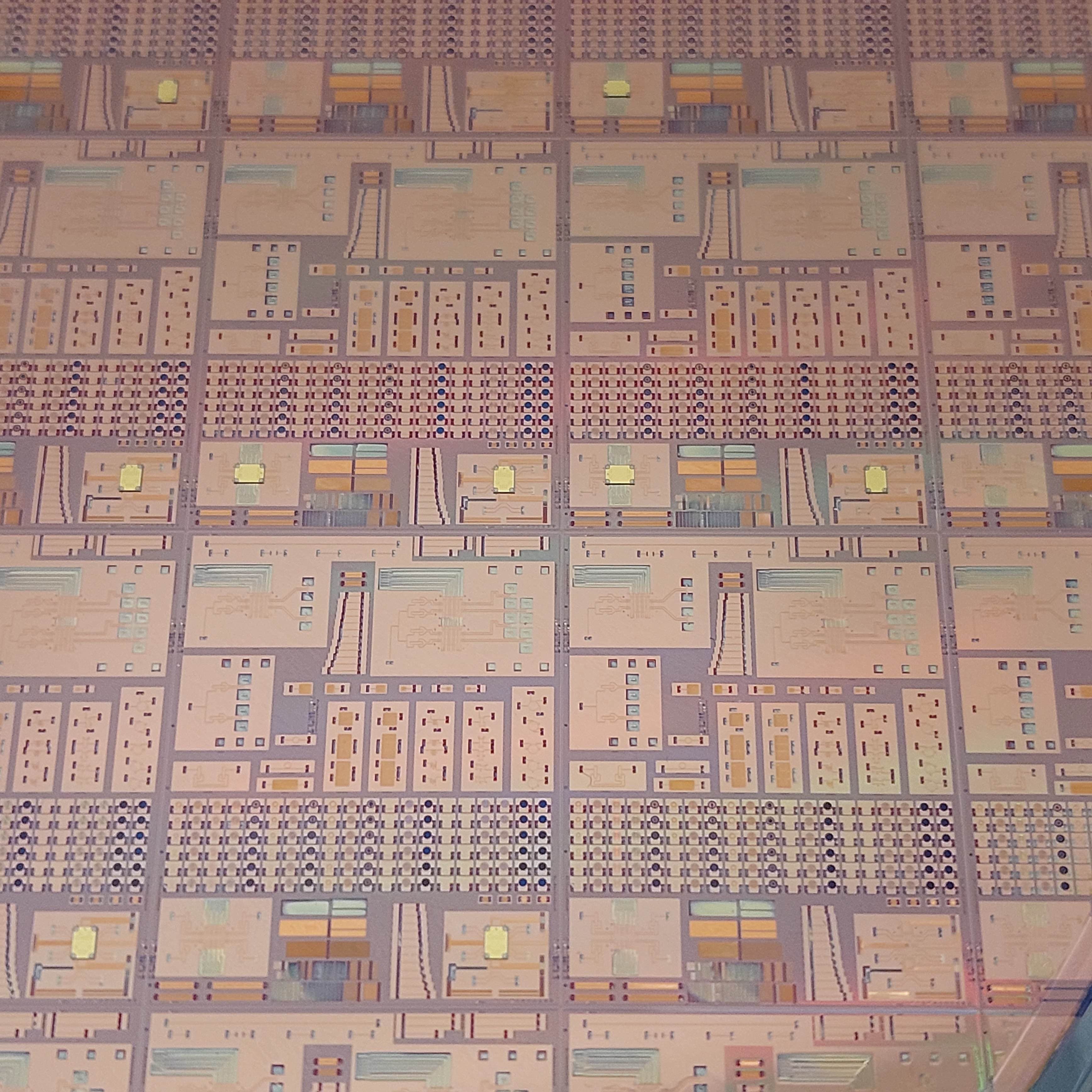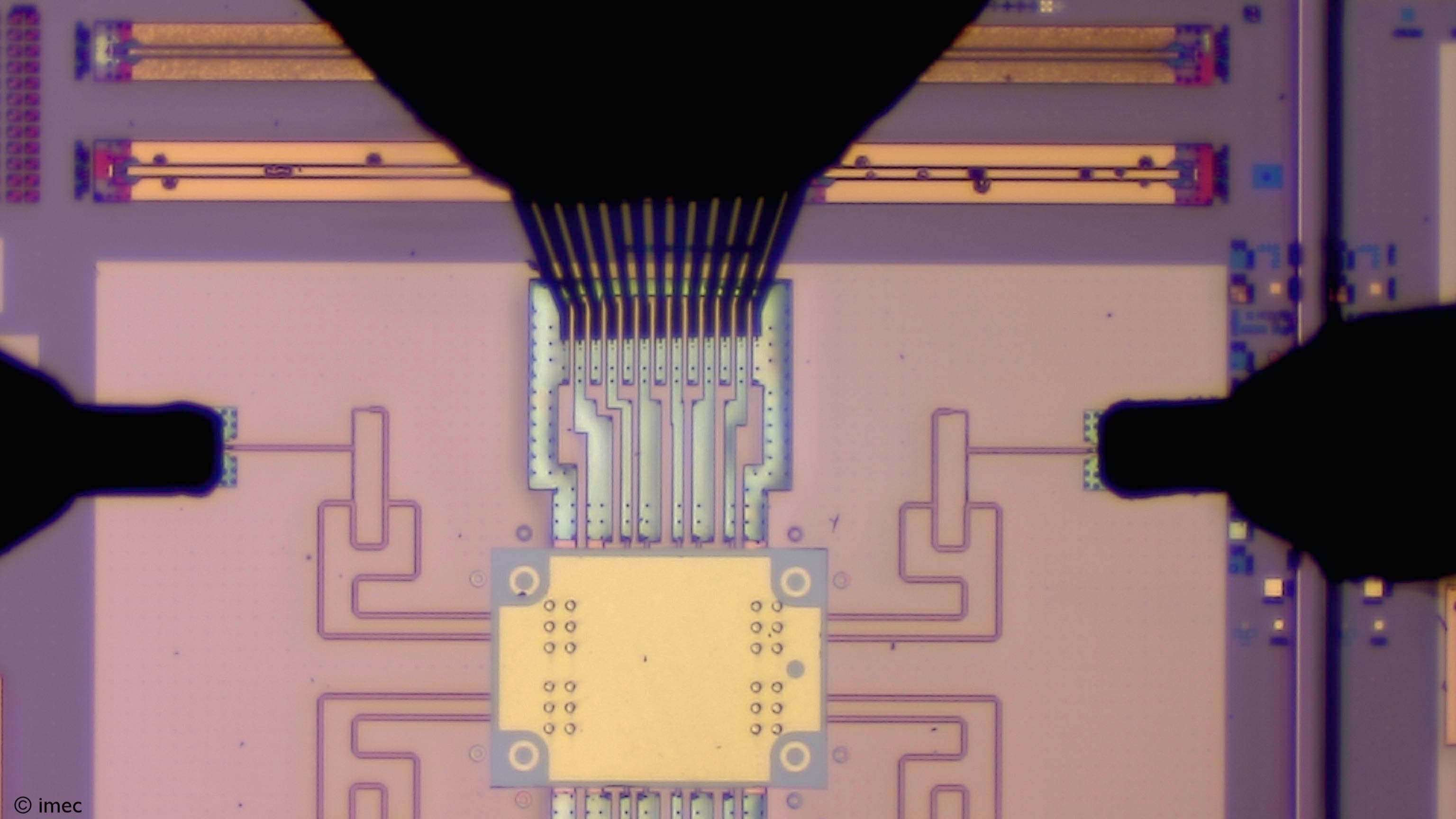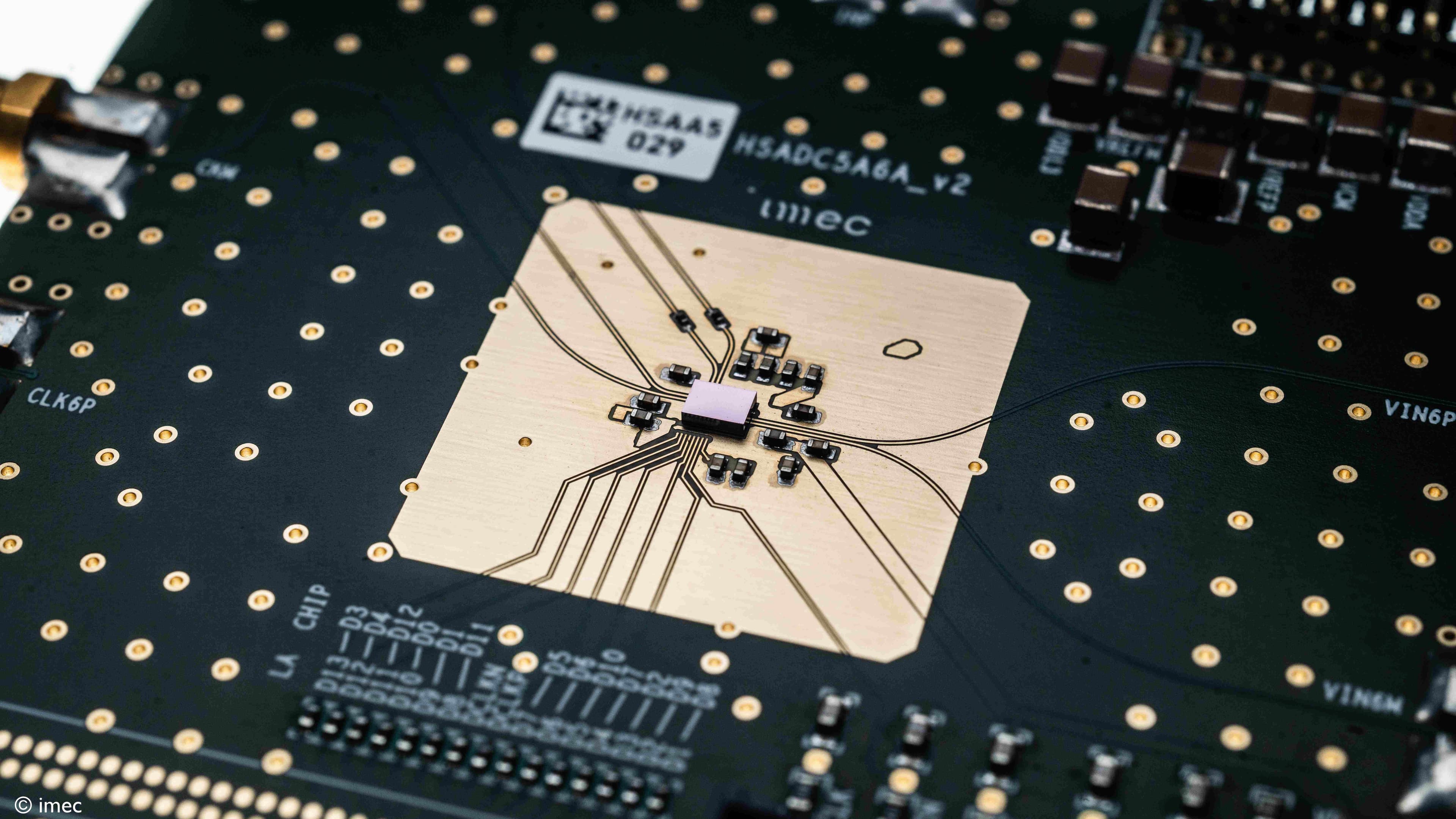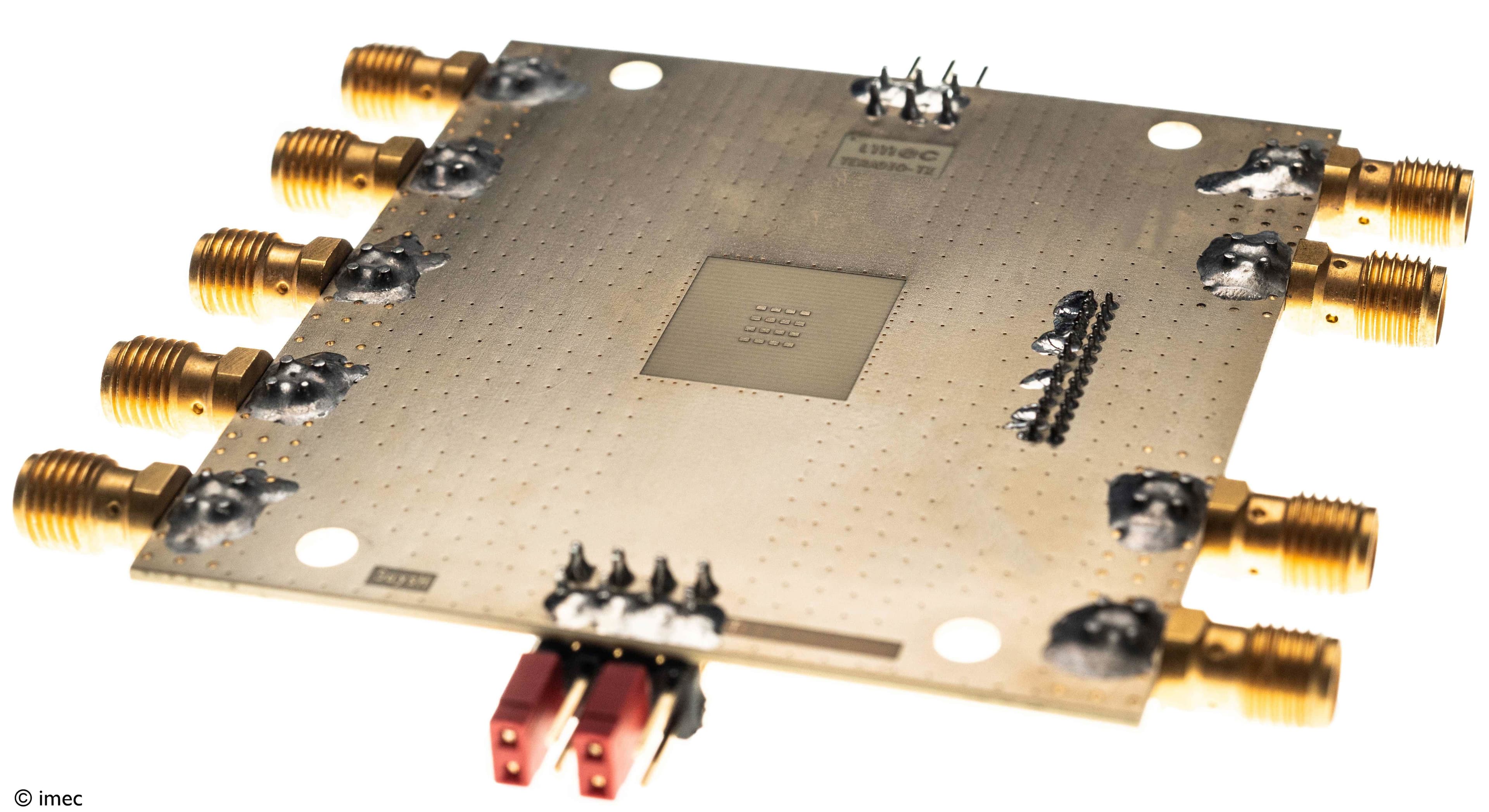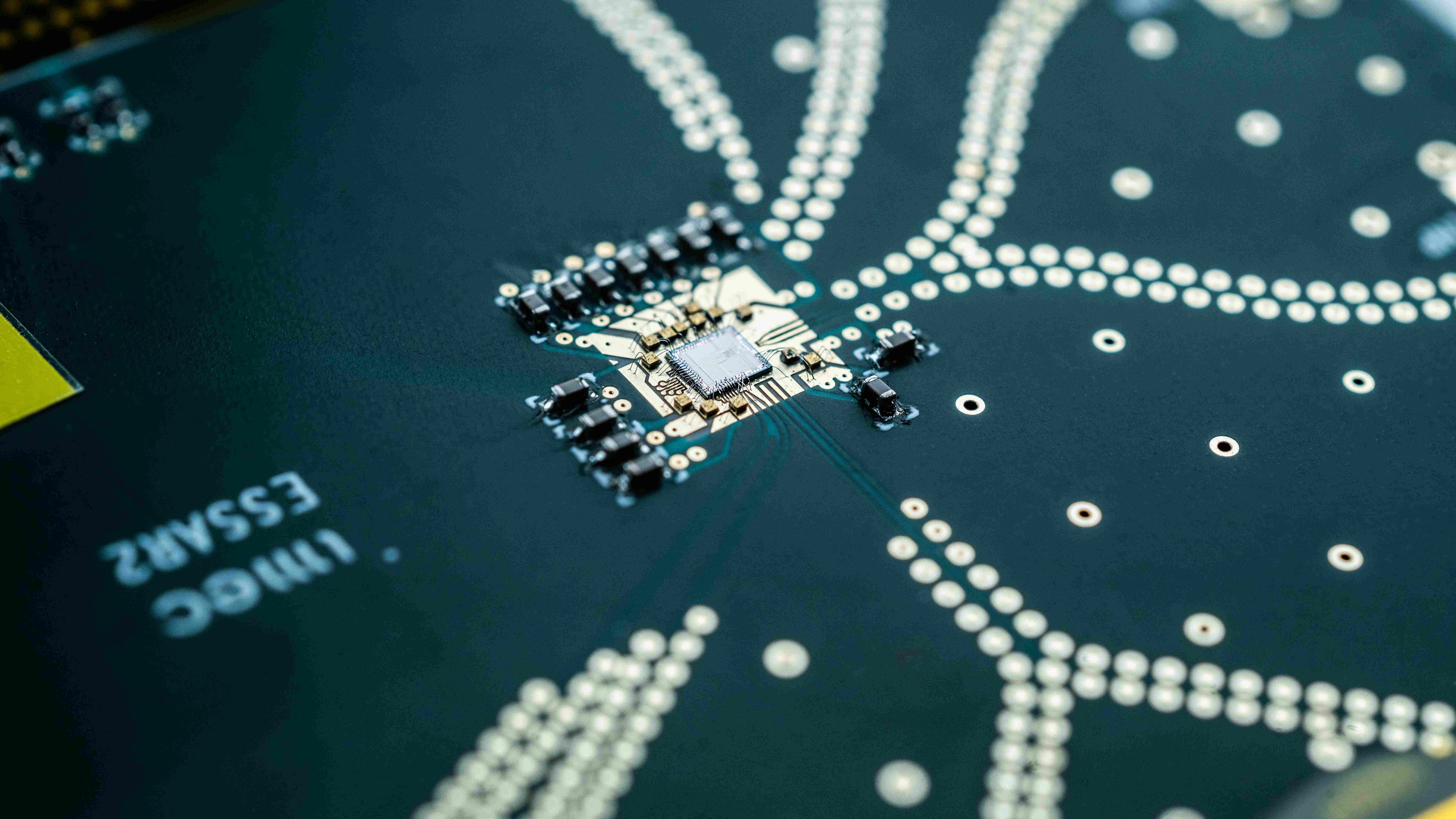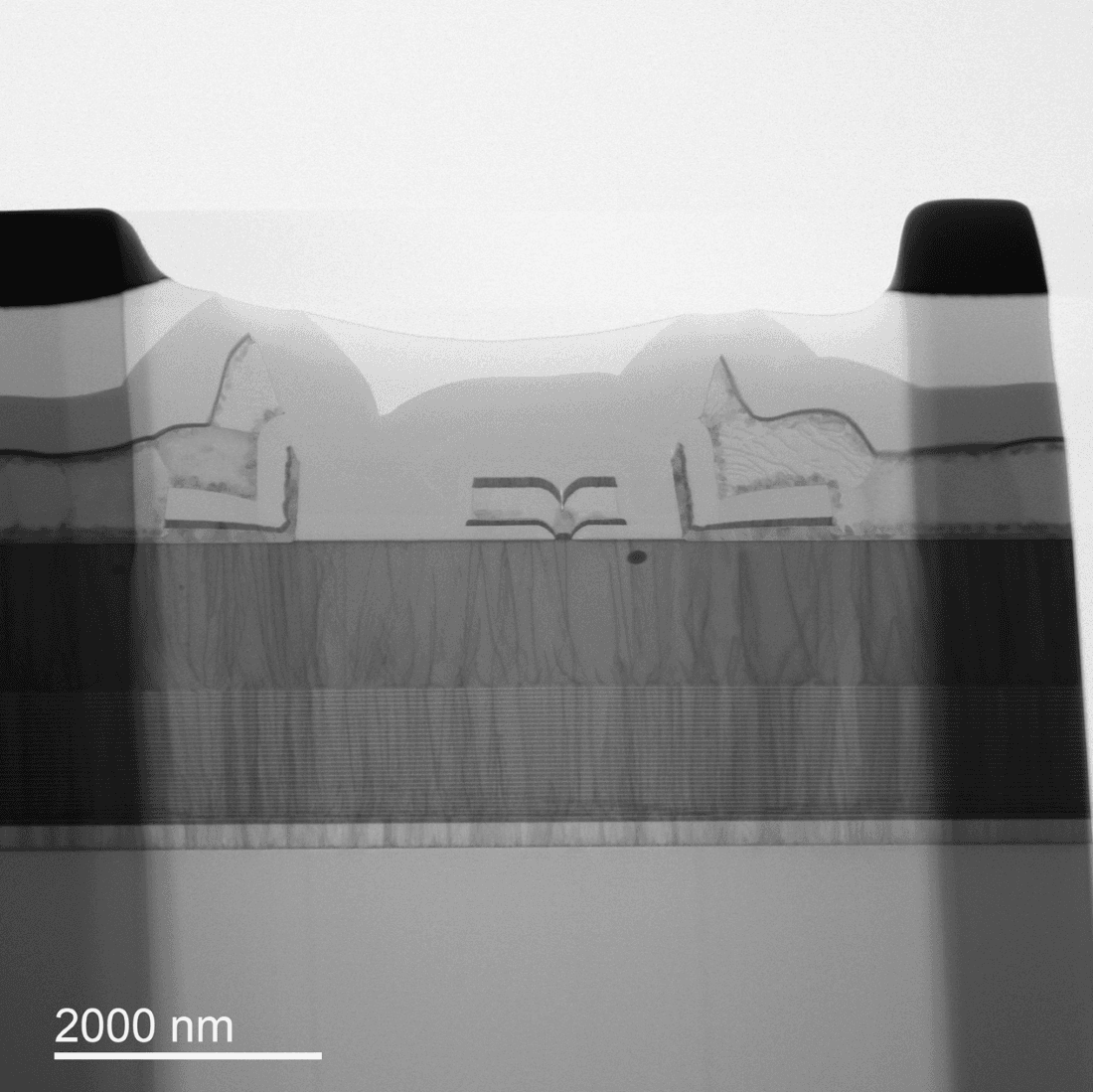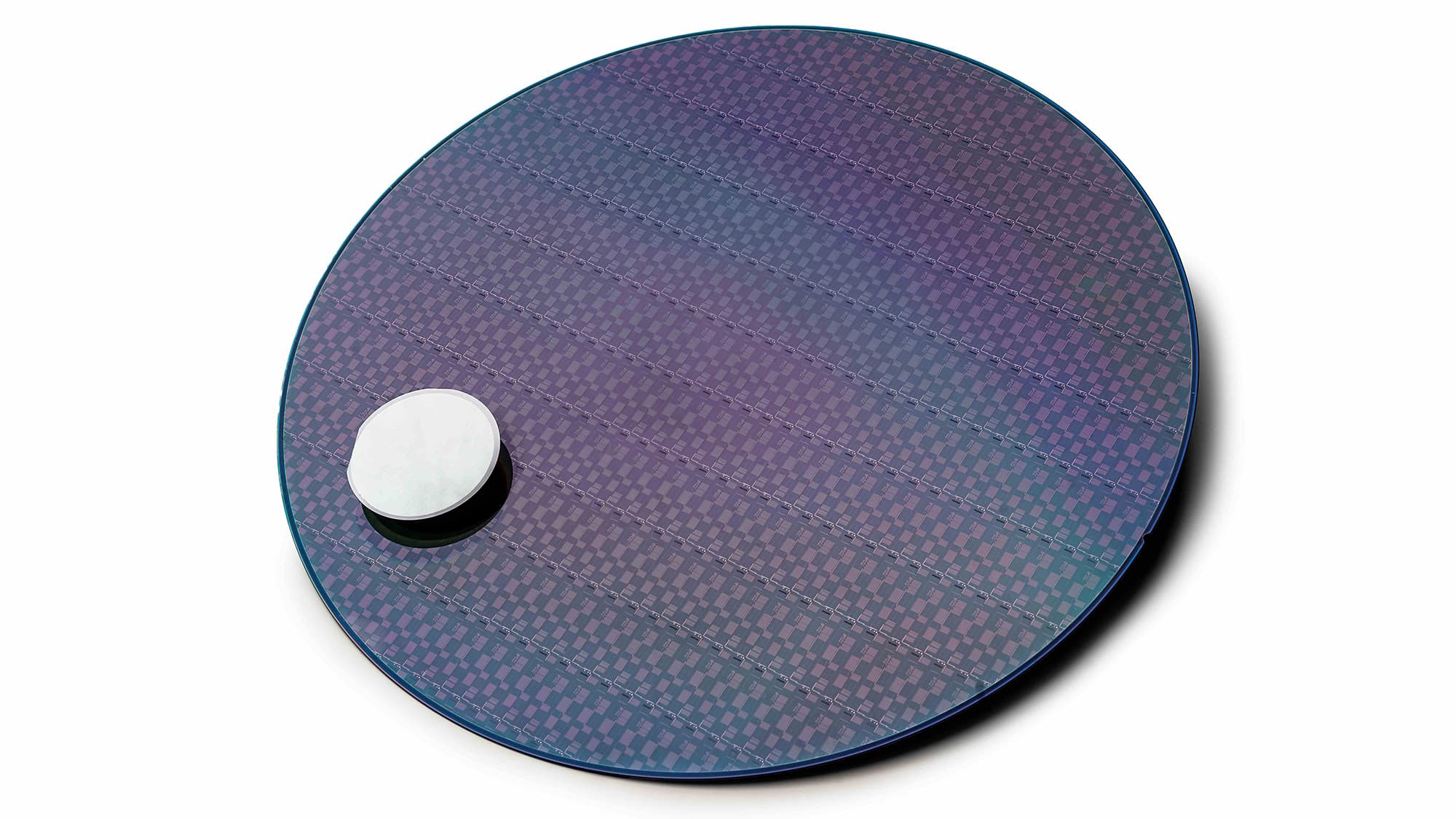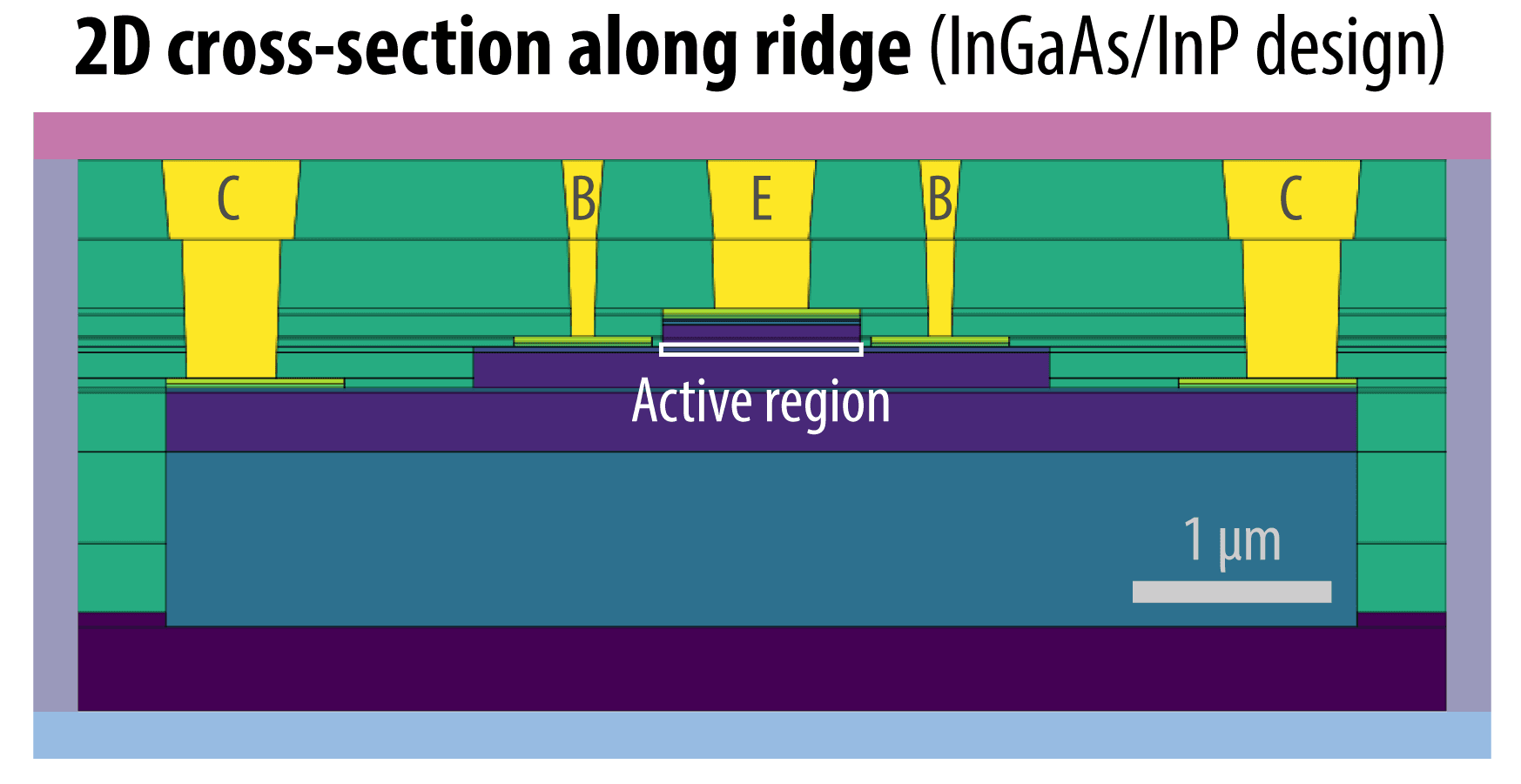Sven Etzold, head of business marketing at u-blox, and Michael Peeters, program director connectivity at imec, exchange insights on how the future of connectivity will go hand in hand with paradigm shifts in our views on technology and on our business relations.
In the November issue of U, the u-blox technology magazine, and on the company’s YouTube channel, an extensive dialogue is featured between Sven Etzold and Michael Peeters, explaining their take on connectivity in relation to societal and technical megatrends. A perfect occasion to introduce you to imec’s partner u-blox, a global provider of leading positioning and wireless communication technologies, and to summarize the most captivating insights from this expert interaction.
u-blox and imec: pioneering in connectivity
Headquartered in Switzerland and with over 1000 employees operating in 28 locations worldwide, u-blox specializes in delivering the core technology to locate and wirelessly connect people, machines and devices. With 6900 customers in 54 countries, it’s safe to say that since its foundation in 1997, u-blox has grown into an important player in bringing connectivity to the global market (and into space). Having started with the development of the first commercial gps product used for the heavy vehicle road pricing system in Switzerland (LSVA), the product portfolio of u-blox now contains a multitude of state-of-the-art connectivity solutions for the Internet of Things (IoT).
Being on the forefront of technology, it’s no coincidence that u-blox and imec have a history of successful collaborations. For example in the development of an all-digital phased-locked loop (ADPLL), a crucial component in modern electronic communication systems like frequency synthesizer, modulator/demodulator etc.
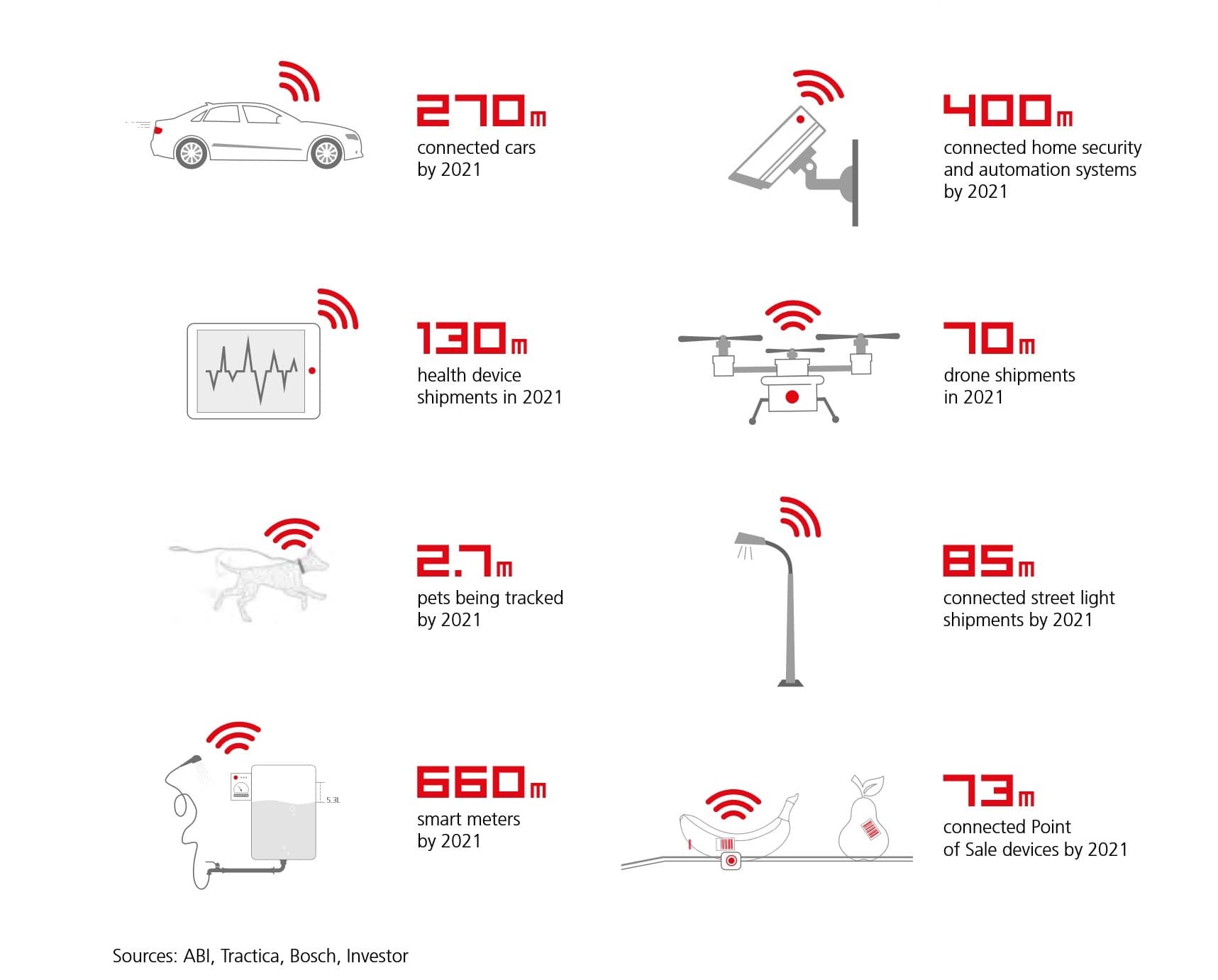
The connectivity market is huge. But what fundamental changes will this entail? (©u-blox)
Trusting we cannot understand everything
But what does the future of connectivity have in store for us? Michael Peeters: “We are gradually moving towards a new paradigm where, in our relationship to knowledge and technology, we will have to learn and trust decisions and information we cannot understand. There used to be an era of ‘the Renaissance man’, when it was still possible for a single person to know all of scientific knowledge and understand it. With the rise of digitization, we shifted to the concept of ‘the Internet man’: who does not know everything, but can still find all the information and understand it. The next step is a world in which we cannot find everything, let alone understand it.
The man of the future will need to know how to trust the decisions made by machines and non-human entities.
This understanding of trust is going to become more important than the understanding of information. We will start asking which are the right decisions, instead of which is the right information.”
Sven Etzold: “Giving people a framework to trust decisions made by machines is something we haven’t solved yet. If we look back a little, we were always looking after the reliability of systems. I think the big paradigm shift will really be when we move from reliability to secure, trustworthy systems. This is the biggest step to overcome. At the end, we need humans because they decide: do I look after reliability or do I trust something that is giving me advice or driving me from A to B? We have to ensure that, even if machines become smarter and take decisions, humans remain in the driver’s seat, and that we also have a common sense and direction we want to go in. I think technology can help to make the world a better place. But we cannot disconnect technology development from challenges like global warming, refugee crises, political incidents, and a kind of instability globally.”
Michael Peeters: “Or as the AI-expert Pedro Domingos says: ‘People worry that computers will get too smart and take over the world, but the real problem is that they’re too stupid and they’ve already taken over the world.’”
Paradigm shift in technology
Michael Peeters: “In a similar way, I see a paradigm shift on the level of technology and networks. Where the networks of the past were mostly about human communication, the networks of the future will be increasingly populated by interactions from one artificial intelligence engine to the other. This AI-to-AI interaction might have completely different requirements regarding the technical specifications of a network.”
Sven Etzold: “I agree. Yet, if you break it down, to a certain extent we are always talking about the same things: how to connect things to each other, how to transport information, and how to interpret the information to reach a certain goal or state. And while the use cases will change and might be different for eHealth or for a smart city, the core components and technologies are always the same.”
Michael Peeters:
When I think about the connectivity of the future, we already know what the enabling technologies are: capacity (broadband), deterministic wireless networks, and very sensitive low-power sensor networks.
First, we will continue to need evermore capacity and technologies like millimeter wave with better amplifiers, better networks, smaller, more power efficient chips, multi-modes connectivity, and so on.
Second, there is what I would call deterministic wireless networks. Reliable, on time, where we know that when we send something, it will arrive. The protocol stacks, the software, the encryption, perhaps even the machine learning to optimize those networks, are all critical technologies for the networks of the future.
The third part I would say is sensing technology: sensitive networks that work with very low power and can live forever on a battery (or no battery) drive huge needs for integration. Ever smaller systems, what we call BOM-less, or bill of material-less systems, where you can integrate everything on silicon. Just look at Bluetooth, at GNSS (Global Navigation Satellite Systems) receivers and their incredible improvement in power consumption over the last 10 years. You have three GNSS receivers in a single watch while you used to need a big box in your car for one. That has been incredible, and needs to continue.”
The notion of ecosystems as competitive entity
Sven Etzold: “Systems will become more and more integrated, so we expect that we can trust the core technology as well as the data integrity of transmitted information. We have to ensure 100% that transmitted data cannot be manipulated. That it's always the data of the sender, who might be a human or even an IoT device. Finally this will even become part of the enabling technologies. Sooner or later, system engineers will expect that all these functionalities are prebuilt in the chips and components and that they can simply use them straight away.”
Michael Peeters: “I think the ecosystem is a key term there. Because of the much tighter integration of enabling technologies, ecosystems are becoming more and more important. Frankly, in the future it may be even likely that the competitive entity will no longer be the company or the factory, but the ecosystem. We have seen a little bit of that already. You have the IEEE unlicensed Wi-Fi ecosystem and you have the 3GPP licensed cellular ecosystem, which to a large degree are now accessing the same space.
In the future, you’ll see companies like Amazon creating ecosystems around themselves, on the logistics side, on the distribution side, on the manufacturing supply chain side. Companies like Softbank investing in Uber, in Lyft, and Careem. Then they add content and cross-fertilize over that ecosystem. The same thing is also going to be key for connectivity. I think the important thing of an ecosystem is a shared vision of the future: for example ubiquitous sensing and connectivity built on a reliable trust base.”
Sven Etzold: “This notion of ecosystems will also change our business relations.
Rather than delivering a certain product at a certain moment, it means that as a player in this field you have to be part of the ecosystem over the whole lifetime.
It's really from cradle to grave, where you have to follow through delivering your expertise into the ecosystem. I think that we can't get off of our reliance on the huge tech giants today. We have Apple, Google, Facebook… who are creating their own ecosystems. But even these tech giants can't drive it totally by themselves. They need strong collaboration, carriers, the infrastructure to drive it all, and they can't do it by themselves because this wouldn't be a nice looking future.”
The users’ perspective
Sven Etzold: “Also from the perspective of the end user, I think that connectivity today means that you can access an ecosystem wherever you are. When you enter a building, or a certain area, you also have the possibility to access a certain ecosystem. I believe that in the future this will also become a paradigm shift. Because connectivity doesn't necessarily mean that you are connected to something, but rather that you're part of the ecosystem, which is a fundamental difference as. It won’t just be the Internet of Things, but rather the Internet of Everything and Everyone. For this to happen, you need political stability, because these systems can only be driven in a good world and will only be secure and also trustworthy for those that are part of the ecosystem.”
Michael Peeters: “A lot of those ecosystems are indeed data ecosystems where everyone wants to own the data. This is where the touch point is with political stability, because access to certain types of data in a politically unstable context is an accident waiting to happen.”
Sven Etzold: ”Also, money can be an obstacle towards democratic access to these ecosystems. For example: today, while everyone's talking 5G, you have lots of demos showing how our lives will improve by applying this technology. Reality today is slower than expected, and it's mainly related to the huge investments that have to be made.
So money is really one thing that is holding back a totally connected future.
It doesn't necessarily mean only that companies are not willing to invest. It's also that, because of the rapidly changing technological offerings, people or even governments themselves don't know if they’ll be happy with their decisions two days later. We have to be aware that the industrial and automotive use cases have life cycles that are much longer than the next innovation cycle. It's getting difficult for people to decide, what should I do right now? 5G is once again a perfect example with what they call massive machine type communication. In the 4G era they called it LPWA (low power, wide area), which is more or less the same thing. So we already see the clear need and requirement from markets, from ecosystems, to say that if we decide to do LPWA today and we want to do massive machine type communication in five years, we don’t want to change everything. If you don't invest today, you're just postponing the investment and you have to put the money on the table five to six years later, when really everything's available.”
Michael Peeters: “On the aspect of money and priorities: even inside 5G there is an example of this. When 5G was being defined, there were discussions in the International Telecommunication Union (ITU) to define a number of use cases. One of them was, for example, ubiquitous connectivity, but at a much lower bit rate: 50Mbits per second over hundreds of square kilometers, instead of the Gbits over shorter distances on which is now being focused. This would be ideal in developing countries and rural communities to bring them up to the level of having connectivity and the ability to have all of the automation improvements in efficiency. But, as said, the investment environment just isn't there today, because a lot of the connectivity is being driven by entertainment and communications. So it's mostly broadband and the other use cases get some attention, but not sufficient.”
Connectivity as a Human Right?
Michael Peeters: “A lot of images circulate of Maslow's pyramid of needs, where the bottom layer is replaced by Wi-Fi, and where connectivity and the ability to communicate drive evolution. So I think to the extent that you need technology and connectivity to evolve - like in a more fundamental way food, clean air, and water - it should be a right.
And there is an inequality. But at the same time, putting my optimistic hat on, if you look at the world today, there are more people connected than ever. Healthcare across the world on average is better than ever. Access to education on the whole is better than ever. So while there is this digital divide, we have to keep an eye on it. Perhaps it's not technology that's a human right, but education and understanding of the technology.”
Sven Etzold: “If technology is defined as having the right to access information that I need to improve my life, I would say: yes, technology is a human right. Technology is more like the vehicle: you need to have the ability to access it to address all the other challenges. I agree that looking at Maslow’s pyramid, things have changed. Access to information and the right also to spell out your own thoughts, to be able to articulate your them, to participate at discussions should be there too. It's not only about surviving, it's also about becoming a vital part of a society.
We in the Western world need to ensure that fundamental rights can be applied in other societies. And I think technology is a very helpful vehicle to do so, and also to raise the flag and say we should steer into another direction, rather than go straight ahead.”
Want to know more?
- Read the full interview on page 42 of U, the u-blox technology magazine
- Watch the complete conversation on the u-blox YouTube channel
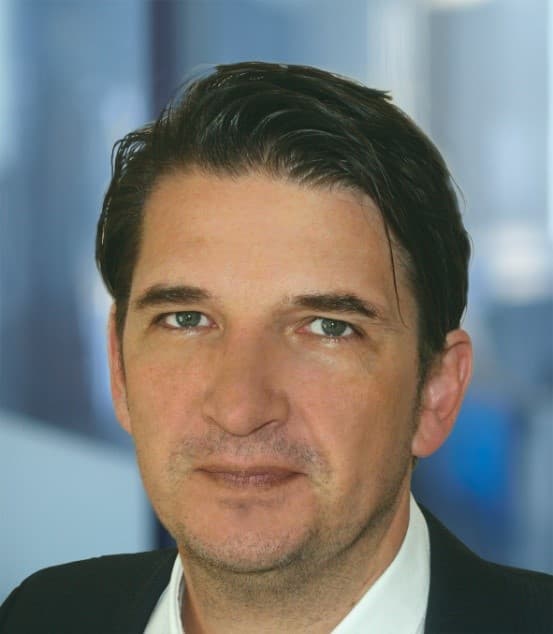
Sven Etzold is Senior Marketing Director, Head of Business Marketing at u-blox. After 10 years consultancy work in the area of new media, Sven Etzold took over responsibility for the Web-Marketing of a security software company. Since 2015, he has been leading the Business Marketing team at the HQ of u-blox, in Thalwil, Switzerland. Sven studied mechanical engineering at the Technical University of Darmstadt (Germany).
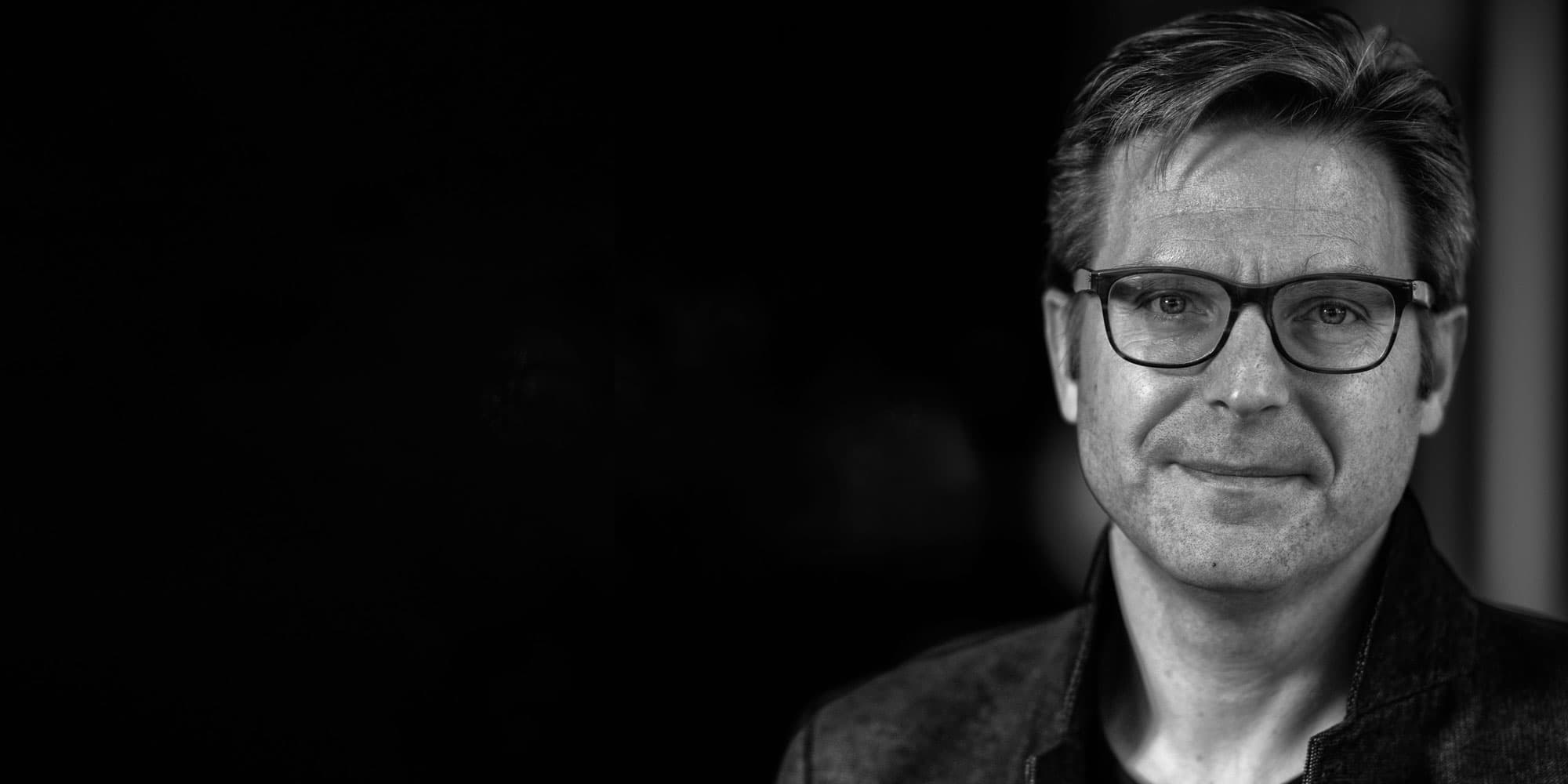
Dr. Ir. Michael Peeters is program director connectivity + humanized technology at imec. Both as head of the Nokia Incubator and the innovation portfolio at Nokia, and as CTO of the wireless division at Alcatel-Lucent, his role required him to make the continuous trade-off between the potential of technology and business case realities. Prior to his role as CTO of the wireless division, he was also CTO of Alcatel-Lucent’s wireline division. Michael has authored more than 100 peer-reviewed publications, many white papers and holds patents in the access and photonics domains. Michael earned a Ph.D. in Applied Physics and Photonics from Vrije Universiteit Brussel as well as a master’s degree in Electrotechnical Engineering.
Published on:
3 December 2019

